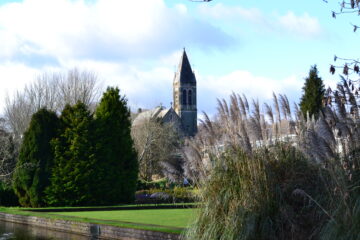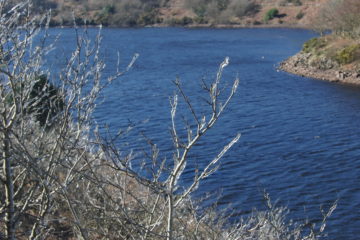Once integral to rural industry, Finch Foundry is the last remaining functional water-powered forge in England and played an important part in the history of tool-making in the UK. The business was founded in the late 19th century by William Finch. It then passed through successive generations of the same family, with its most profitable period being under the leadership of Rebecca Finch, who inherited in the foundry in 1885, following the death of her husband. After her death, the business was forced to diversify and it continued in various guises until its collapse in 1960.
Around 10 years later, the site reopened as the Finch Foundry Museum, until it was formally taken over by the National Trust in 1994. The buildings required extensive repair to prevent their collapse, which was made possible by a legacy from a local supporter.
Nowadays, visitors to the foundry can take a guided tour (pre-booking recommended), which takes in the gallery, where you can find information about the history of the foundry and the Finch family, and the carpenter’s workshop, where examples of some of the tools made at the foundry over the years are displayed. The collection includes many implements for the numerous agricultural tasks through the year, as well as tools that will be more familiar to gardeners. You’ll also see the launder, which collects the water needed to power the waterwheels. Inside the forge itself, the hammers, shears and sharpening stone can be found. The foundry offered a ‘while-you-wait’ sharpening service and once the large stones had come to the end of their life, they would be broken up and sold to the public.
When the demand for tools dipped, the foundry branched out into the funeral business. Planks for coffins were cut at the foundry’s sawmill, while the handles, bosses, nails and grave markers were manufactured in the forge. A wake and transport service was also provided through members of the Finch family who ran catering and vehicle rental businesses.
At the back of the foundry is a very pretty garden, and a small tearoom and picnic area. You’ll also find the Quaker Burial Ground here. The small thatched arbour contained within it was built by Tom Pearse (made famous in the song ‘Widecombe Fair’ as the owner of the grey mare), who purchased the ground for the villagers of Sticklepath in the 1830s. It was recently restored as a memorial to a younger member of the Pearse family. From the garden and car park, there is access to the riverside walk along the Taw, which will eventually take you past the leat that feeds the waterwheels at the foundry and on into Belstone. Look out for the Tarka Bridge, which has extracts from ‘Tarka the Otter’ engraved into the handrails. It’s a lovely walk at any time of year, but in May the bluebells carpeting the slopes of the wood are a spectacular sight.
Finch Foundry is closed through the winter months, but reopens each year on November 23rd to celebrate St Clement’s Day, who is the patron saint of blacksmiths. The car park and woodland walk are open throughout the year.


